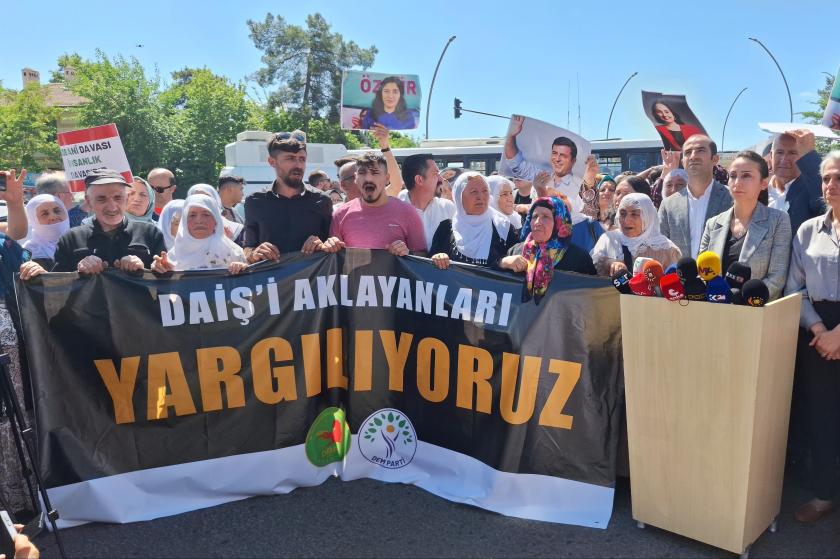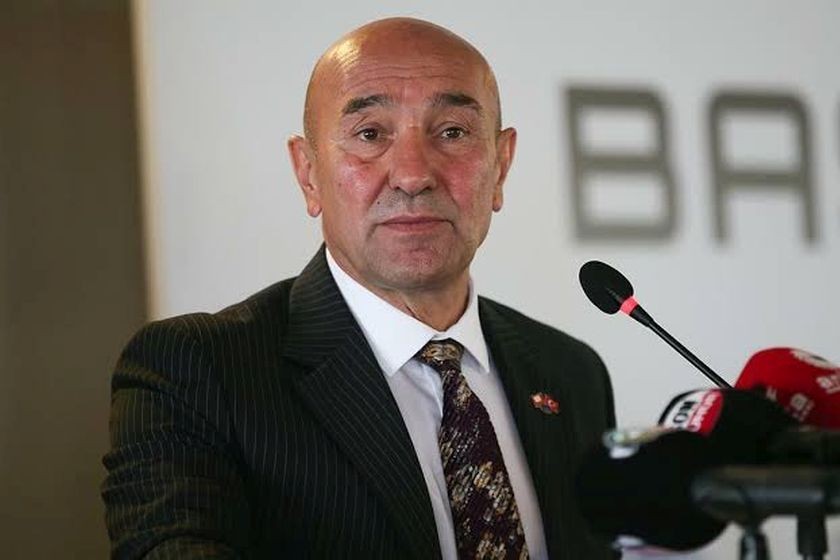Ankara attack and Foreign Minister Fidan's 'legitimate targets'!
The government, which tries to create legitimacy for its policies by putting Turkish society in a 'fear tunnel' through the "threat of terrorism", is actually the real cause of this threat.

Fotoğraf: AA
The statements made by the government in the aftermath of the recent bombing attack in front of the entrance gate of the Ministry of Interior's General Directorate of Security, which was claimed by the PKK, show that the government does not aim to clarify the question marks surrounding the attack, but to use these question marks for its political goals within the country and across borders.
In his statement on the latest attack, Foreign Minister Hakan Fidan points to Syria as the address of the attack, reminiscent of the statement made by then Interior Minister Süleyman Soylu after the attack on the police house in Mersin last year. After saying that the perpetrators of the attack came from Syria and received training in Syria, Fidan said, "All infrastructure, superstructure facilities and energy facilities belonging to the PKK and YPG in Iraq and Syria are now the legitimate targets of our security forces, armed forces and intelligence elements. I advise third parties to stay away from PKK/YPG facilities and individuals."
There are many questions about how the latest attack was carried out, and one of the government's spokespersons in the media, Abdülkadir Selvi, summarized these questions under 6 headings in his article, ranging from how the perpetrators of the attack arrived to the channel through which the explosives were brought and whether the license plate of the hijacked vehicle was registered. However, instead of answering these questions, Fidan's statement clearly reveals an effort to turn the latest attack into a justification for the operations in Syria and Iraq, which have always been controversial in terms of international law.
Indeed, after the attack in Ankara, Turkish warplanes carried out airstrikes in the Iraqi Kurdistan Region, including in the countryside of Sulaymaniyah and Duhak, which Iraqi President Abdullatif Rashid condemned as a violation of Iraqi sovereignty and a cause of civilian casualties.
Last month, 3 Peshmerga from the Patriotic Union of Kurdistan (KYB/YNK) were killed in a Turkish drone attack on Erbet Airport in Sulaymaniyah, and the Foreign Ministry of Turkey stated that the targets of the attack were "practicing with the YPG". Fidan's latest statement, in which he advised "third parties to stay away from PKK/YPG facilities and individuals", not only indicates that similar attacks will continue, but also sends the message that from now on, any person or organisation deemed a 'threat' will be targeted, regardless of whether they are civilian or military.
In the meantime, it should be noted that there are better relations between the Erdoğan administration and the Sudani government in Iraq compared to the previous governments. After the recent operations, Iraqi Defense Minister Abbasi came to Ankara to hold talks with Minister of National Defense, Yaşar Güler on "operations and border security". Last August, Foreign Minister Fidan visited Iraq for talks with the Iraqi center and the Kurdistan Regional Government. Nevertheless, it does not seem easy for the Iraqi government, which recently reached an agreement with Iran on the evacuation of the camps of Iranian Kurdish parties and the deployment of 'border guards' on the border, to reach or implement a similar agreement with Turkey on PKK camps. Moreover, beyond the camps in Qandil, the PKK today has an active position in large areas in Iraq, from Sulaymaniyah and Kirkuk to Sinjar (Sinjar). For this reason, the KDP and the Barzani administration, who see the PKK's gaining power in Iraq as a threat to them, support Turkey's operations to neutralize the PKK.
On the other hand, it is not hard to guess why Foreign Minister Fidan said that the perpetrators of the latest attack came from Syria and were trained in Syria, despite SDF Commander Mazlum Kobani's statement that "the perpetrators of the Ankara attack did not come from their region and that they are not party to Turkey's internal conflicts". As it is known, Erdoğan's government has been looking for a new operation against Rojava for a long time, but has not been able to realize it due to the balances in the region. Therefore, Fidan's latest statements foretell a new search for an operation against Rojava.
So, why does the Erdoğan government insist on an operation despite the fact that the Kurdish forces in Kobani and Rojava have repeatedly said that they are ready to hold talks with Ankara to solve their security problems?
In order to understand the answer to this question, we should first point to the detention operations against HDP members and executives in many cities, especially İstanbul, after the recent Ankara attack.
In his article, Abdülkadir Selvi, citing intelligence sources, says that the perpetrators of the attack "took care not to contact terrorist elements inside the country so that their preparations would not leak out". Nevertheless, immediately after the attack, more than a hundred people, including HDP executives, were detained as if they had something to do with the attack.
If the government had any interest in solving the Kurdish problem on the basis of democratic politics and peaceful methods, the first thing it would have to do would be to address the legitimate representatives of the HDP. However, the government is portraying the HDP as a "target" like a "terrorist focus" and, moreover, organising political operations in many cities after the latest attack in order to strengthen this perception.
This is because the government does not want to solve the Kurdish problem, but to instrumentalise it for its political goals at home and beyond the borders.
First of all, the government is trying to use the political operations against the HDP and democracy forces as a means of intimidating the opposition and maintaining the repressive regime it has established. A striking example of this intimidation policy is the lynch campaign against journalist Ayşenur Arslan for raising questions about the Ankara attack and the termination of her program on Halk TV, even though she was released by the prosecutor's office that took her statement.
Secondly, the government insists on this policy even though the operations in Iraq and Syria due to the Kurdish problem have brought Turkey face to face with this problem in wider areas and deepened the insolubility. Because it wants to use the operations stemming from the Kurdish question as a basis for expansionist ambitions in the region; thus, it wants to take an active position in the struggle for sharing between imperialists and grab a share in this struggle.
Therefore, the government, which tries to create legitimacy for its policies by putting Turkish society in a 'fear tunnel' through the "threat of terrorism", is actually the real cause of this threat. The forces that defend democracy against the repressive regime at home and peace against the warlike policies in the region must recognise this reality and take a stance.






Evrensel'i Takip Et